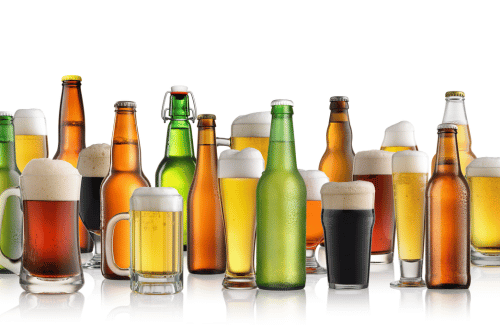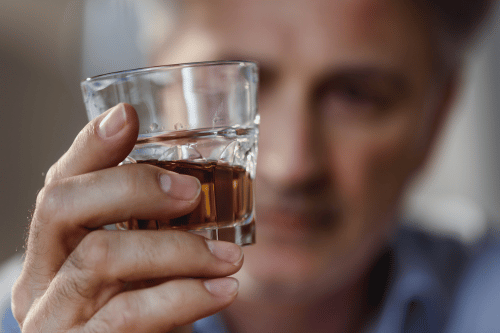

Individuals grappling with alcohol addiction frequently seek answers to a critical question: How Can You Detox From Alcohol both swiftly and safely. Alcohol detoxification represents the indispensable initial phase of recovery, facilitating the body’s elimination of alcohol while expertly managing potentially life-threatening withdrawal symptoms. This comprehensive guide elucidates the mechanisms of medical detox, outlines inherent risks, and details what patients can unequivocally expect within a professionally supervised medical setting.
Alcohol detoxification, commonly referred to as alcohol detox, is the medically supervised process of systematically removing alcohol from the body following prolonged substance abuse. Its primary objective is to restore physiological equilibrium and mitigate the severe risks of medical emergencies such as delirium tremens (DTs) or seizures. Patients undergoing this critical phase are closely monitored for withdrawal symptoms, which can include vomiting, severe headaches, diarrhea, and profound anxiety.
For a significant number of patients, alcohol detoxification transcends mere discomfort; it can rapidly escalate into a life-threatening medical emergency. Severe alcohol withdrawal dramatically elevates the risk of delirium tremens, grand mal seizures, dangerously unstable blood pressure, and acute confusion. Given the profound physiological and neurological dependence on alcohol established through chronic abuse, abrupt cessation can precipitate dangerous, even fatal, symptoms that necessitate immediate medical intervention within a rigorously controlled clinical environment.
During medical detox, a dedicated team of healthcare professionals meticulously monitors the patient’s vital signs, including blood pressure, heart rate, and neurological status, alongside their mood and overall health. Pharmacological interventions, such as naltrexone, are often administered to effectively reduce cravings and significantly lower the risk of relapse. Concurrently, comprehensive nutritional support, vigilant hydration, and structured rest are integral to bolstering the body’s intrinsic detoxification pathways. This integrated approach—combining evidence-based medication, precise fluid management, and therapeutic engagement—is paramount for stabilizing both physical and mental health, thereby laying a robust foundation for addressing the underlying disease of addiction.

Alcohol withdrawal and drug withdrawal frequently manifest with overlapping neurological and behavioral effects. Characteristic symptoms encompass anxiety, nausea, vomiting, severe headaches, diarrhea, pronounced mood lability, and disorientation. In more severe presentations, patients may experience seizures, delirium, or vivid hallucinations. The profound physiological stress imposed by these withdrawal symptoms underscores the absolute necessity of medical detox, which ensures continuous, safe monitoring and timely pharmacological treatment when clinically indicated.
The precise timeline for alcohol detox is highly individualized, contingent upon factors such as the patient’s drinking history, overall health status, and inherent relapse risk. While many patients complete acute alcohol detoxification within approximately 3 to 7 days, individuals with severe addiction or co-occurring medical conditions may require extended periods of intensive monitoring. When patients inquire how many days does it take to detox from alcohol, the definitive answer is determined by their specific level of alcohol dependence and their susceptibility to severe complications such as seizures or delirium tremens.
Patients often express a desire to know how to detox from alcohol quickly; however, attempting rapid, unsupervised methods carries extreme risks, frequently leading to critical medical emergencies. Unassisted cessation without appropriate medication and therapeutic support dramatically increases the probability of relapse, uncontrolled anxiety, and life-threatening seizures. Safe and effective detoxification prioritizes gradual physiological stabilization through medical detox, comprehensive hydration and nutritional support, and integrated therapy to foster sustainable long-term health outcomes.
While adequate hydration and balanced nutrition are supportive elements in physiological recovery, they are fundamentally insufficient to manage the complexities of alcohol addiction. Consuming water, maintaining balanced meals, and ensuring sufficient rest may alleviate *mild* withdrawal discomfort, but these measures cannot address the severe, potentially fatal risks such as delirium or seizures. For anyone seeking to understand how to clean out alcohol from your system, the unequivocally safest and most effective approach is supervised medical detoxification, where expert medical monitoring, targeted medication, and therapeutic interventions safeguard the patient from life-threatening complications.

Medical detox provides a meticulously structured, secure, and clinically controlled environment essential for recovery. Physicians may prescribe specific medications, such as naltrexone, to effectively manage cravings and withdrawal symptoms. Patients are under continuous observation for critical physiological changes, including fluctuations in blood pressure, escalating anxiety, and significant behavioral shifts throughout the entire detoxification process.
Detoxification, in isolation, does not constitute comprehensive addiction treatment. Integrated therapy is absolutely essential to address the underlying mental health conditions and maladaptive behavioral patterns intrinsically linked to substance abuse. Structured therapy sessions empower patients to significantly reduce their risk of relapse by cultivating healthy coping mechanisms and developing effective strategies for managing triggers.
While some patients inquire how to detox off of alcohol at home, attempting this without professional medical supervision carries profound and potentially fatal risks. Unsupervised withdrawal can precipitate severe seizures, delirium tremens, or even death. For individuals with milder symptoms and robust home support, outpatient programs offer a viable alternative, allowing patients to maintain aspects of their daily life while still receiving essential medical and therapeutic oversight.
Alcohol profoundly impacts brain function, mood regulation, and overall mental health. A significant number of patients experience depression, anxiety, or cognitive confusion during the detoxification phase. Comprehensive medical detox programs are specifically designed to address both the critical physical and complex mental health needs of the patient concurrently.
Optimal nutrition is crucial for repairing the physiological damage inflicted by chronic alcohol abuse. Adequate hydration is equally vital, assisting the body in processing toxins and maintaining essential fluid and electrolyte balance during detox. Without proper nutrition and hydration, withdrawal symptoms such as vomiting and diarrhea can become dangerously exacerbated.

Many individuals search for definitive answers to how can you get alcohol out of your system, but it is imperative to understand that there is no rapid or simplistic solution. Time, consistent hydration, and, most critically, medical detoxification represent the only safe and effective methods. Attempts to “cleanse” the body through unguided or unscientific means significantly increase health risks and can cause severe harm to the patient.
Physicians strategically utilize specific medications to render the withdrawal process safer and more tolerable. Naltrexone is frequently prescribed to effectively diminish cravings and prevent relapse. Other pharmacological agents may be employed to stabilize blood pressure, alleviate severe headaches, or meticulously control the risk of seizures, ensuring a medically sound detoxification.
A subset of patients struggling with alcohol dependence also concurrently misuse opioids. Both substances exert profound effects on the central nervous system and dramatically elevate the risk of overdose or acute medical emergencies. Detoxification for co-occurring opioid and alcohol abuse necessitates exceptionally rigorous monitoring, integrated therapy, and precise medication support.
Patients frequently inquire how to cleanse body from alcohol naturally. While nutrition, hydration, and rest are undeniably supportive of general health, they are fundamentally incapable of replacing the critical oversight provided by medical detox. Professional medical detoxification ensures that the patient is continuously monitored for severe complications such as delirium, acute relapse risk, and other dangerous withdrawal symptoms, thereby guaranteeing patient safety.
Medical detox is specifically designed to protect patients from the life-threatening sequelae of unsupervised withdrawal. Expert medical professionals meticulously monitor vital signs, seizure activity, and mood fluctuations throughout the entire detoxification process. Opting for medical detox profoundly reduces the risk of relapse and furnishes patients with an exceptionally strong foundation for subsequent therapeutic engagement and sustained recovery.
Relapse, while a challenging aspect, is a recognized component of the recovery journey and does not signify treatment failure. Comprehensive therapy is instrumental in helping patients modify maladaptive behaviors, effectively manage cravings, and implement strategies to prevent future relapse. Continued, consistent treatment after the acute detoxification phase is absolutely essential for achieving long-term health and sobriety.

Within a structured rehabilitation environment, alcohol detox is meticulously supervised, incorporating precise medication management, comprehensive hydration, and tailored nutritional support. Patients simultaneously engage in intensive therapy to address the profound mental health impacts of addiction. For anyone seeking to understand how can you detox from alcohol safely and effectively, medical detoxification within a specialized treatment facility represents the optimal and most secure pathway.
Acute confusion and delirium are common, yet dangerous, manifestations of severe alcohol withdrawal. Patients may experience profound disorientation regarding their location or current circumstances. Medical detox ensures that these critical and dangerous symptoms are promptly and safely managed through expert clinical intervention.
Prominent physical symptoms of alcohol withdrawal include severe headaches, persistent vomiting, and debilitating diarrhea. These can rapidly lead to dangerous dehydration without meticulous fluid management. Medical detox provides essential intravenous fluids, targeted medication, and nutritional support to stabilize the patient’s physiological state.
Chronic alcohol abuse inflicts significant damage upon the brain, profoundly altering mood, cognitive function, and behavior. Detoxification initiates the brain’s arduous healing process, though complete neurocognitive recovery may require an extended period. Integrated therapy plays a crucial role in supporting brain health by equipping patients with adaptive coping skills and fostering healthier thought patterns.
Insurance providers frequently cover medical detoxification and comprehensive addiction treatment as integral components of behavioral health benefits. Patients are strongly advised to verify their specific insurance coverage details prior to commencing detox. Accessible financial support significantly enhances the availability of critical medical detox services for those committed to recovery.
Detoxification is not a singular event but a meticulously structured clinical process designed to safeguard both the body and brain. Initially, the patient ceases alcohol consumption, thereby initiating withdrawal and the associated risk of symptoms such as acute anxiety, vomiting, or seizures. Subsequently, expert medical staff rigorously track vital signs, hydration levels, and mental health status, while administering essential medications like naltrexone to mitigate cravings and prevent relapse. Finally, integrated therapy and comprehensive nutritional support are provided to facilitate physiological restoration and guide the patient toward sustained, long-term recovery following alcohol detoxification.
Chronic alcohol abuse significantly elevates a patient’s risk for severe liver disease, critical cardiovascular complications, and irreversible brain damage. Unsupervised withdrawal carries the grave risk of delirium, profound confusion, or seizures, rendering supervised medical treatment absolutely essential. Successful medical detox demonstrably reduces these severe health risks, fortifies the body’s resilience, and substantially lowers the probability of relapse by providing patients with a secure and medically sound foundation for subsequent therapy.
Medical detox is meticulously engineered to prioritize and protect patient safety at every stage of withdrawal. Clinical staff vigilantly monitor for the onset of delirium tremens, unstable blood pressure, and other drug withdrawal symptoms that could rapidly escalate into a medical emergency. Through precise medication management, optimal hydration, and comprehensive nutrition, patients undergo systemic detoxification safely, while simultaneously reducing the risk of relapse or enduring long-term health complications.
Alcohol detoxification is an unequivocally critical first step for any individual confronting substance abuse or addiction. Whether the inquiry is how to detox off of alcohol, how to detox from alcohol quickly, or how to cleanse body from alcohol, the definitive answer lies in safe, professionally supervised medical care. At Sullivan Recovery in Mission Viejo, patients receive expert medical detox, evidence-based therapy, and robust relapse prevention support, empowering them to heal physically, strengthen their mental health, and embark on their recovery journey with unwavering confidence.
The information provided in this content is for educational purposes only and is not intended as a substitute for professional medical advice, diagnosis, or treatment. Always seek the advice of your physician or other qualified health provider with any questions you may have regarding a medical condition. Never disregard professional medical advice or delay in seeking it because of something you have read here. Alcohol detoxification is a serious medical process that can be life-threatening without proper supervision. If you or a loved one are struggling with alcohol addiction, please consult a healthcare professional immediately.
At Sullivan Recovery, as an in-network provider we work with most insurance plans, such as:
And More
If you or a loved one are struggling with mental health challenges or substance abuse, reach out to Sullivan Recovery today. Our team of compassionate professionals is here to support your journey towards lasting well-being. Give us a call at 949-836-7180.
While some individuals with very mild dependence might theoretically detox without medication, doing so significantly elevates the risk of relapse, severe seizures, or life-threatening delirium tremens. Medical detoxification with appropriate pharmacological support is unequivocally the safest and most effective option for achieving sustainable long-term recovery.
Moderate physical activity, such as gentle walking or stretching, can support healthy blood circulation, help mitigate anxiety, and improve mood during the detoxification process. However, strenuous workouts should be strictly avoided until the patient’s overall health and physiological stability are fully established under medical guidance.
Optimal nutrition plays a vital supportive role in the healing process during detox by replenishing essential vitamins and minerals depleted by chronic alcohol abuse. While it is crucial for recovery, nutrition alone cannot, and must not, replace the critical oversight and interventions provided by supervised medical detoxification.
Outpatient detox may be considered safe for carefully selected patients exhibiting only mild withdrawal symptoms and possessing a robust, supportive home environment. However, for individuals at any risk of delirium, seizures, or relapse, inpatient or rigorously supervised medical detoxification is strongly recommended as the safer and more effective course of treatment.